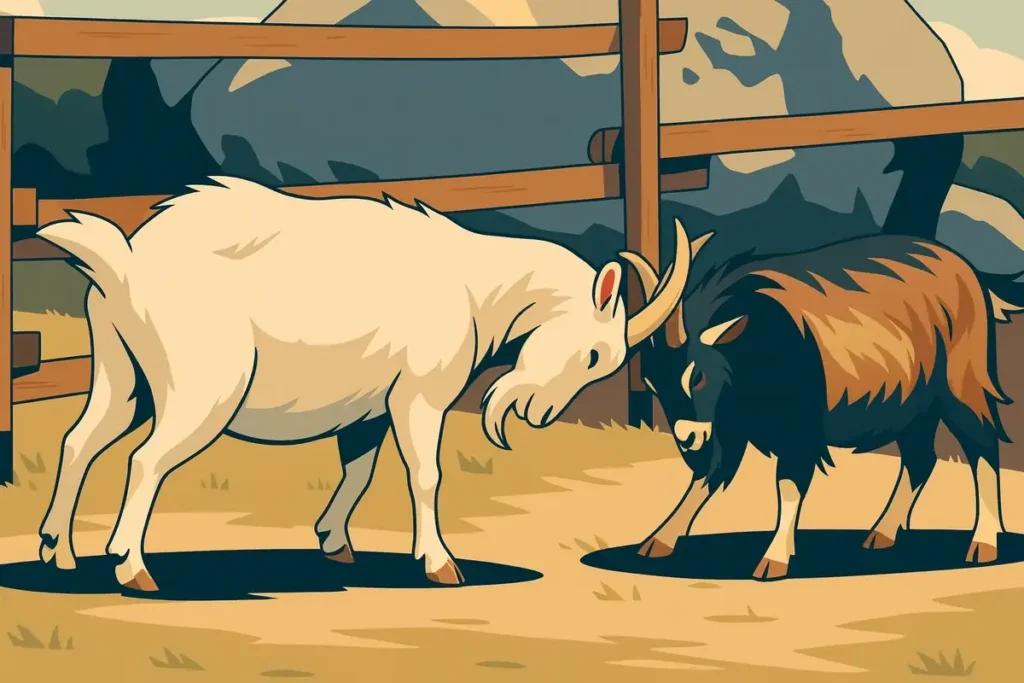[Image Source] AI illustration by DALL·E
TL;DR – Crude jokes = real friendships?
SNL Korea’s “부랄 친구” sketch pushes boundaries with slang like “testicle buddies,” but it’s not just for shock value.
In Korean culture, swearing and teasing often show emotional closeness, especially among male friends.
This post unpacks the expressions, cultural norms, and comic tension behind gender-bending jokes and verbal jabs.

1. SNL Korea – 부랄친구: Scene Introduction
In this outrageous sketch from SNL Korea, two lifelong “부랄 친구” — literally “testicle buddies” — reunite after a long time. The phrase might sound shocking, but in Korean culture, it’s a slangy, crude, and oddly affectionate way to describe extremely close male friends. Think shared childhood baths, endless teasing, and casual insults that only true friends can handle.
In the scene, Kim Won-hoon plays the straight man to Moon Chae-won’s exaggerated tomboy character, who insists she’s one of the guys. The result? A barrage of banter, boundary-pushing jokes, and locker-room-style humor. It’s the kind of chaos that walks the fine line between cringe and comedy.
Expect jokes about pants, baths, backward clothes, and balls — literally. This isn’t classroom Korean, but it’s real.
📺 Watch the original scene here.
[Source] YouTube, Coupang Play
In a sketch from Coupang Play’s SNL Korea, two childhood friends reunite as adults. The female friend casually calls herself a “bural chingu” (literally “testicle buddy”), acting overly familiar, while the male friend feels uncomfortable. The sketch builds a sexually suggestive atmosphere and imagery that invites viewers to let their imaginations run wild. Still, in the end, it all turns out to be innocent childhood play.
2. Slang and Everyday Language in Context
“부랄 친구”
Literal meaning: “testicle buddies”
Cultural role: Describes male friends with a shared childhood history, often involving public bathhouse memories. It’s crude, male-only slang — not for formal use.
“야!” (ya!)
Used repeatedly in the sketch to call out, nag, or escalate a situation. It’s aggressive, playful, or alarming depending on tone and repetition.
“거꾸로 입다”
Means “to wear something backward or inside out.” Here, it’s a punchline and visual gag. This kind of clothing humor is common in Korean sketches.
“매너가 없다”
Used to accuse someone of being rude or inconsiderate. In this sketch, it’s hilariously misapplied during a clothes-changing scene.
“다 벗고 목욕하다”
An allusion to Korea’s public bath culture, where same-gender nudity isn’t a big deal. The phrase becomes awkward and funny when Moon Chae-won claims to have done this with male friends.
“많이 커지다”
Double entendre. Literally “you’ve grown a lot,” but context makes it very suggestive. This is typical Korean sketch humor — verbal ambiguity + facial reaction = punchline.
3. Standout Moments from the Dialogue
“부랄 친군데 뭘 그렇게 쑥스러워 해?”
→ She claims full membership in the boys’ club, challenging traditional gender boundaries.
“넌 부랄이 없는데 어떻게 부랄 친구가 될 수 있어?”
→ He plays the logic card — no testicles, no membership. This line anchors the absurd premise.
“하고 싶은 거 다 해도 돼.”
→ A calm line in the middle of chaos, ironically underscoring the madness with sincerity.
“야, 너 바지 불편하지? 내꺼 줄테니 갈아 입어.”
→ In reality, in Korea, people don’t lend or make a man wear women’s shorts — it’s just a setup for comedy.
“어, 야, 어, 어, 어, 씨, 야, 이, 씨.”
→ Raw emotion packed into repetition. Frustration, embarrassment, and comedy all at once.
“그거 말고 커진 거 같아 많이.”
→ The sketch ends on a suggestive note — typical of SNL Korea’s raunchy but clever humor.
❓ FAQ (Frequently Asked Questions)
Q1. Can women say “부랄 친구” to male friends?
It’s scarce and usually played for laughs, like in this sketch. In real life, it’s considered inappropriate or jarring due to the anatomical reference.
Q2. Is “야!” always rude?
Not necessarily. Among close friends, it’s a casual way to get someone’s attention. But it can sound aggressive or disrespectful if used with the wrong tone or in formal settings.
Q3. Why does Korean humor use so much bathroom or body humor?
Korean sketch comedy often exaggerates awkward or taboo topics like nudity, body parts, and swearing to relieve social tension. It’s a comedic tradition that mixes discomfort with bonding.
Q4. Should I use “부랄 친구” in real conversations?
No. It’s good to understand the word and its context, but you shouldn’t use it unless you’re very close to someone and sure it won’t offend. It’s mostly for recognition, not active use.
4. What This Teaches Us About Korean Humor
Korean variety shows — especially ones like SNL Korea — often blur the line between swearing and bonding. Sketches like this reveal a great deal about how male friendships are expressed through language: harsh, crude, yet affectionate.
And yet, gender still plays a role. A woman using “부랄 친구” creates tension. It’s taboo-breaking — and that’s where the comedy lies. Korean humor thrives on pushing social and linguistic boundaries just far enough to get a laugh without sparking a fight.
This scene isn’t just about funny words. It’s about tone, timing, who’s saying what to whom, and when. That’s what makes this more than just a “swear word” guide — it’s a lesson in cultural fluency.
📍 Want More Like This?
Explore more posts in our Korean Slang Series and dive deeper into how Koreans express emotion, humor, and social nuance through language.
- 🔖 Korean Slang Decoded: 64 Must-Know Expressions to Speak Like a Local
- 🔖 Korean Abbreviations Explained: A Guide to Modern Slang and Trends
- 🔖 Understanding Korean Ambiguity: A Guide to the Beauty of Multilayered Expressions
- 🔖 Korean Honorifics vs. Informal Speech: Master the Basics with Practical Examples
- 🔖 More from the K-Show Slang Series


